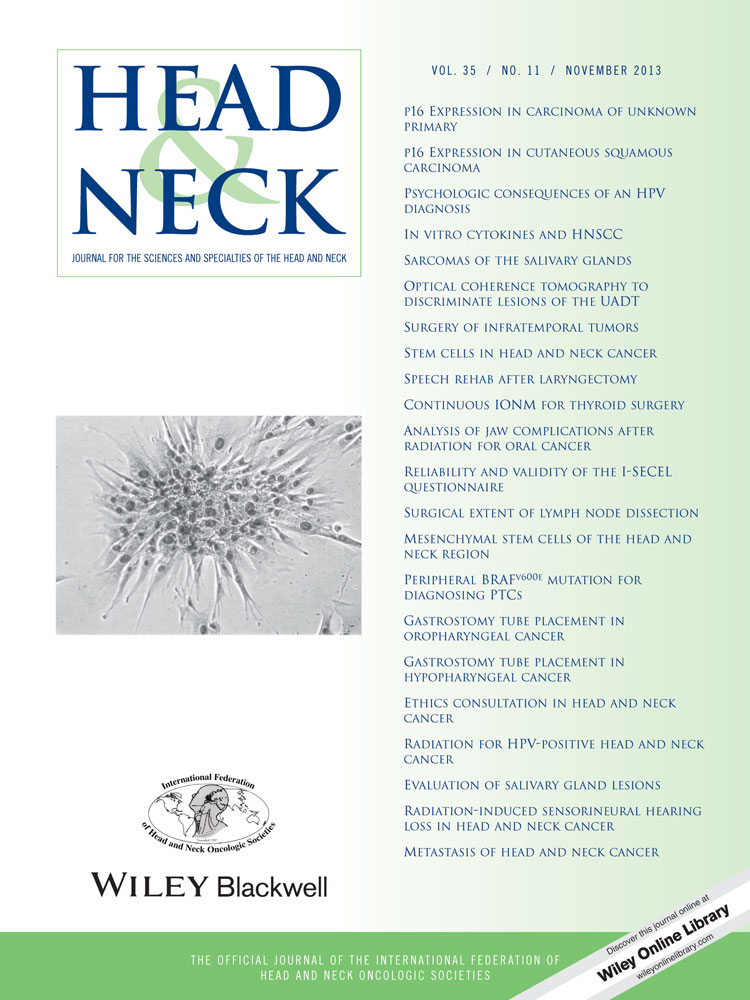Outcome of resection of infratemporal fossa tumors
This work was presented at the 20th North American Skull Base Society Annual Meeting, October 14–18, 2009, New Orleans, Louisiana.
Abstract
Background
A variety of tumors arise in or extend to the infratemporal fossa. We investigated the outcome of surgical management of these tumors.
Methods
We conducted a retrospective review of a craniofacial approach to resection of infratemporal fossa tumors from 1992 to 2008 in a cancer center.
Results
Forty-three patients underwent resection of a infratemporal fossa tumors (68% men). Median age was 46 years (range, 1–81 years). The most common pathology was sarcoma (13; 30%). Twenty-two tumors (51%) were recurrent. Twenty patients (46%) underwent resection of tumors from the infratemporal fossa, 5 (12%) required resection of the anterior skull base, and 18 (42%) required orbital exenteration, additionally. Thirty-one patients (72%) required reconstruction with free tissue transfer. Twenty-seven patients (62.8%) required further treatment with radiation and/or chemotherapy. Complications occurred in 9 patients (21%). Six patients (14%) underwent salvage operations. Median follow-up was 24 months. Median overall survival and 3-year survival were 40 months and 59.6%.
Conclusion
Tumors involving the infratemporal fossa can be resected with acceptable morbidity and long-term survival. © 2013 Wiley Periodicals, Inc. Head Neck, 35: 1567–1572, 2013




